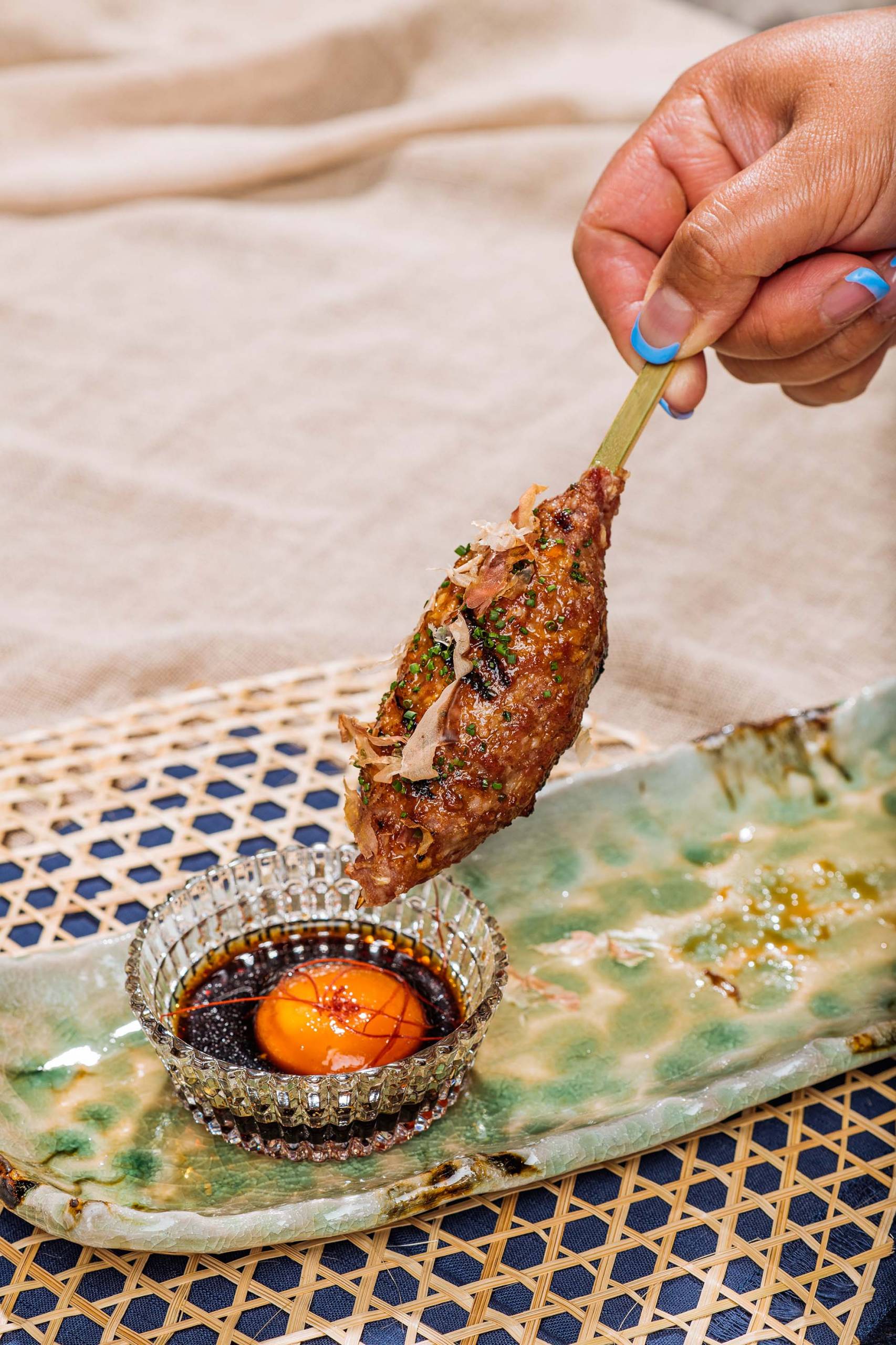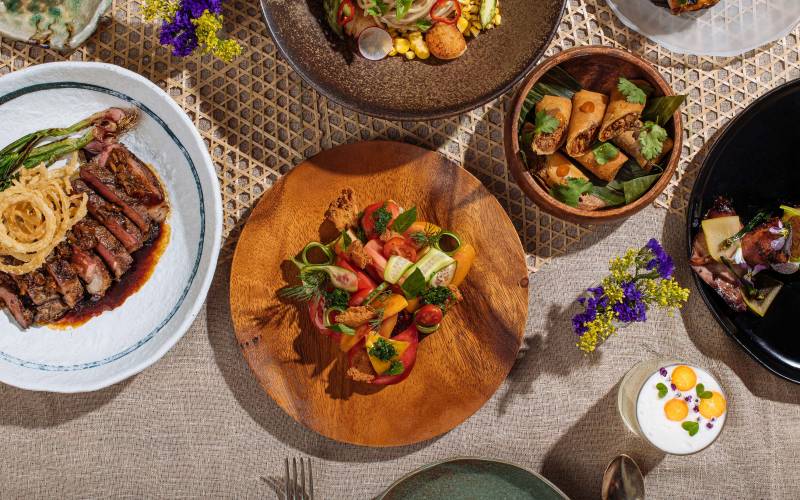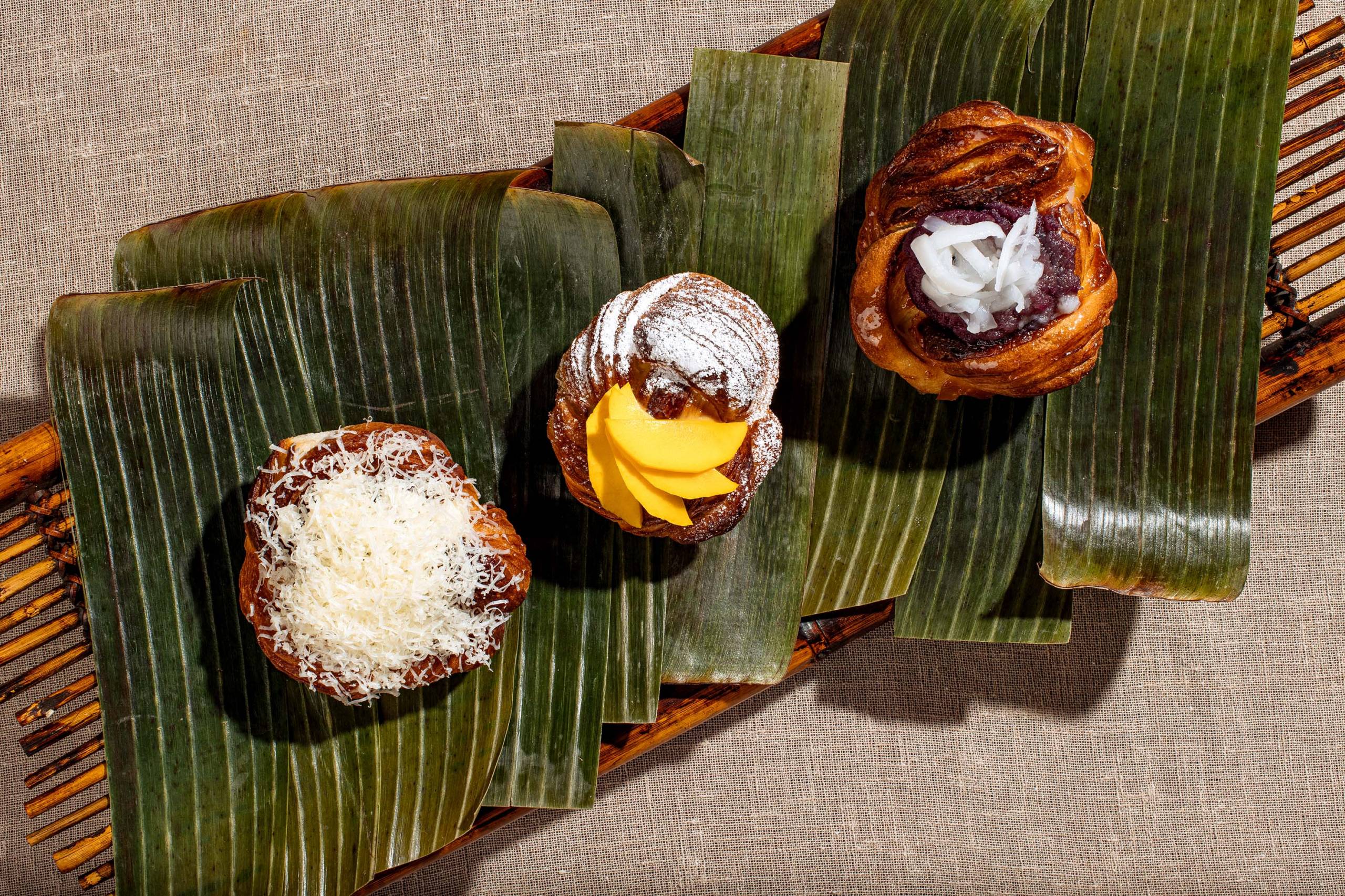If any chef in San Francisco has mastered the art of the pop-up, Francis Ang has. As the chef for Pinoy Heritage, the Filipino-Californian pop-up series he’s run with his wife Dian since 2016, Ang has slung countless little cardboard trays of sisig fried rice at food festivals and hosted communal kamayan feasts as warm and welcoming as a dinner party with friends. Even out of tiny, cobbled-together kitchens, he’s assembled the kind of precise, prettily plated tasting menu dishes that compare favorably to any Michelin-endorsed masterpiece.
And now, finally, Ang and his team are opening a full-fledged restaurant of their own. Located inside the brand new Kimpton Alton Hotel in Fisherman’s Wharf, Abacá opens today, Aug. 16, with an exciting, small plates–focused dinner menu from Ang and chef de cuisine Danica Aviles, as well as a panaderia serving Filipino breads and pastries during the morning and afternoon.

The idea is to carry forward with Pinoy Heritage’s primary mission: to introduce lesser known, regionally specific Filipino dishes to Bay Area diners. In other words, Ang says, “We’re using Abacá as an opportunity to show that Filipino food is not just your typical adobo and pancit.”
In many ways, Ang has become the face of the Bay Area’s modern Filipino food movement over the course of the past five years, doing as much as anyone to expand diners’ understanding of what Filipino food is and has the potential to be. The driving force behind the Pinoy Heritage pop-ups was the series of extended research trips that Francis and Dian would take to the Philippines each year, traveling to as many of the country’s 7,000 individual islands as they could. On a trip to the southern island of Mindanao, for instance, they learned about chicken pyanggang, or grilled chicken blackened with coconut ash—a dish Ang had never even heard of during the 19 years he lived in the Philippines. Now it’s part of a whole section of of skewers on Abacá’s menu that’s meant as a nod to traditional Filipino barbecue.
What sets Ang apart from a lot of other Filipino chefs in the Bay Area, though, is that he isn’t only interested in serving dishes in their most straightforward form. His pop-ups are known for presenting traditional dishes with a touch of fine-dining elegance (Ang’s background, after all, was as a fine dining pastry chef)—for pushing the envelope on what modern, California-inflected Filipino food might look like.



